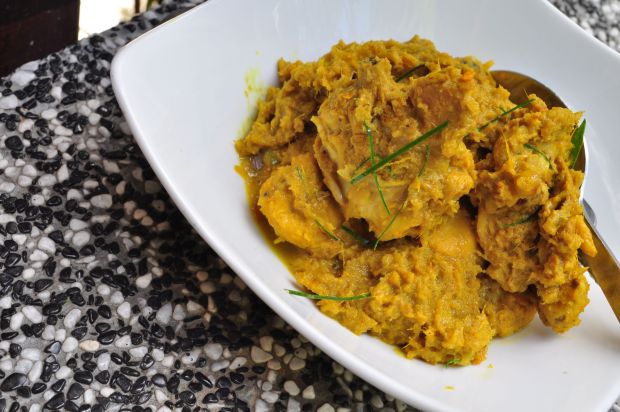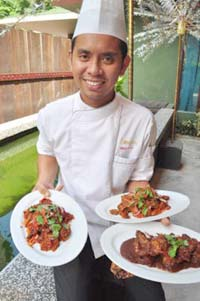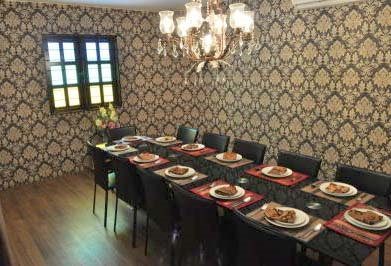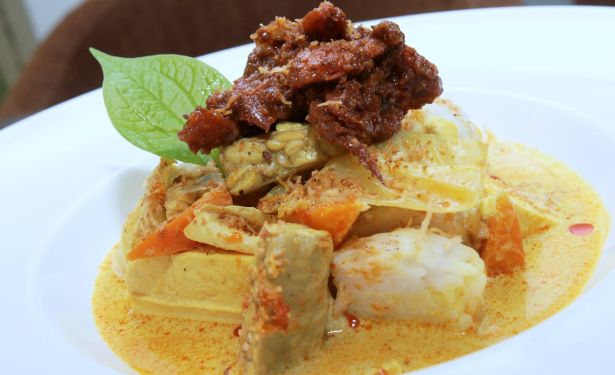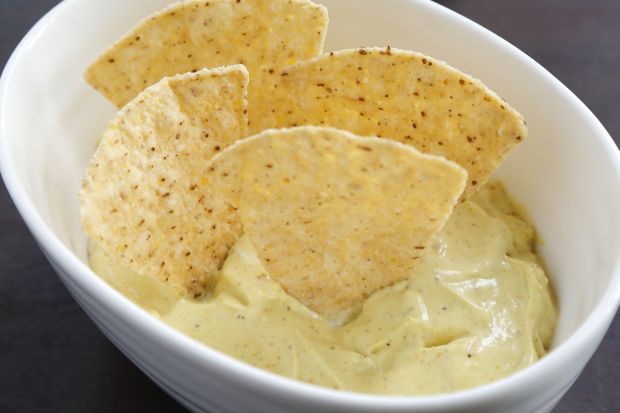Songket Restaurant
(Halal)
29, Jalan Yap Kwan Seng,
Kuala Lumpur.
03-2161 3331 / 012-366 0111
Tel: (03) 2172 7272 / 7680
www.makan-kitchen.com
Opening hours: Mon-Fri (Noon-3pm / 6pm-11pm),
Sat, Sun and public holiday (5pm-11pm)
www.songketrestaurant.com
A rendang dish that’s yellow rather than red, petai ice-cream, fern shoots fried in tahi minyak – Songket Restaurant offers some unusual dishes.
YOU see it all the time: “Authentic Nasi Padang”, “Authentic taste of Kelantan”, “Authentic flavours of the North”. But to Zamri Jemintan, the 30-year-old chef at Songket Restaurant, such claims have a funny ring to them.
Imagine having to assure a diner that he or she will be served the real thing, as if there were such a thing as a fake nasi padang, he shrugs. Zamri, who opened his Malay diner on Jalan Yap Kwan Seng eight months ago, believes there is no such thing as “authentic” when it comes to food.
Take his Negeri Sembilan-styled rendang ayam (RM28), for example, which sports a rich yellow gravy rich with turmeric and the leaves of kaffir lime. Yellow, you say?
“Mention rendang, and most KLites would envision a meat dish in red gravy. But that is just the northern style of rendang. When it comes to authenticity, it all depends on where you are from. If you are from the south, then the red rendang will not be authentic to you. If you are from the north, then you will not regard yellow rendang as the real thing,” explains Zamri.
Even the choice of chicken can be a subject of heated debate. Back home, his mother uses what the Malays call ayam pencen or old chickens because the meat is tougher and will not fall apart after the long braising period. At Songket, though, Zamri prefers to use home-reared “kampung chicken” as the meat is more tender compared to the “retired chickens”.
At the end of the day, it’s all just a matter of taste. On his part, Zamri ensures that all the gravies, sambal, tamarind sauces and otak-otak paste used in his restaurant are from his own recipes. They are all specially blended from scratch and tweaked to his standard – no pre-mixed sauces or ready-made curry formulas.
Zamri started his cooking career at Sunway Lagoon Resort Hotel after graduating from Universiti Tun Abdul Razak (UNITAR) 11 years ago. He met his current business partner Tony Wong, 44, while both were working at a Malay fine-dining restaurant on Jalan Ceylon, KL.
Having done time with the kitchen brigade, the Malaccan next ventured into the poultry and spice supply business. And now he’s opened a restaurant. Zamri jokes that this takes care of the free time that he has in his hands in between the deliveries he does for his other business (which only takes place past midnight).
The food in Songket is authentically Malay, and among the top draws are the Minang Sambal, Beef Dendeng and Freshwater Prawn Kerutup.
The Minang Sambal (RM35) is a hearty dish of deep-fried beef lung and meat strips lathered in a creamy chilli sauce. This simple recipe entails pureed chili, prawn paste and shallots being fried in oil till fragrant before the meat and lung strips are thrown in. They are deep-fried, and this seals in the juices. Afterwards, a quick stir covers everything in sambal, and coconut milk is added in.
Coconut also makes itself felt in the Prawn Kerutup (RM40 per kg). The large freshwater prawns are cooked in kerisek (toasted desiccated coconut) together with a blend of ginger, shallots, galangal and lemongrass. Pinches of aniseed and cumin add an earthy flavour. The trick here is to get the balance of herbs and spices. Too much cumin, and the dish ends up with a bitter aftertaste; too little, and it is overpowered by the citrusy notes of lemongrass.
The Beef Dendeng (RM35) is another must-try. It’s a simple dish of beef tenderloin strips stir-fried in chilies, prawn paste, garlic and shallots. A perfect accompaniment to white rice, this meat dish is a house favourite. You will see it on most tables during lunch hour.
The Beef Tripe Kerabu (RM18) is also popular. Beef tripe tossed in roasted grated coconut, red chilies, coriander leaves and torch ginger buds, it is the quintessential Malay salad. Sporting a light coat of yellow coconut gravy, this herbaceous dish needs just an extra pinch of salt to fully bring out the flavours of the beef tripe.
For those who must have their greens, Zamri recommends stir-fried fern shoots or pucuk paku (RM18). This interesting dish uses tahi minyak. As unpalatable as it may sound, this decadent ingredient is a delicious oil fashioned from – you guessed it – coconut. Coconut cream and caramalised coconut flakes, to be specific. The oil, filled with solidified pellets of coconut milk, really shines when paired with local vegetables like tapioca leaves.
Lastly, don’t forget to keep room for desserts. Try the Coconut Ice-Cream (RM6.95). Smooth, silky and creamy, it’s the perfect end to a spicy culinary adventure. Zamrin is honest enough to admit that the ice-cream is not from Songket’s kitchen but from a local confectioner, whose name he prefers not to reveal.
“I had to go to him because I don’t have an ice-cream machine,” explains Zamrin rather apologetically.
The ice-creams used may not be his, but the recipes are. Zamri can be quite an Indiana Jones when it comes to flavours. The durian and pandan concoctions may not be unusual, but his petai ice-cream, which he introduced during a tasting session recently, surely is.
Making it a mainstay in the menu may be something of a challenge, however. Not every palate, even adventurous ones, is keen on Authentic Petai Ice-Cream.
Songket also features nightly cultural dances from Mondays to Saturdays from 8pm.
